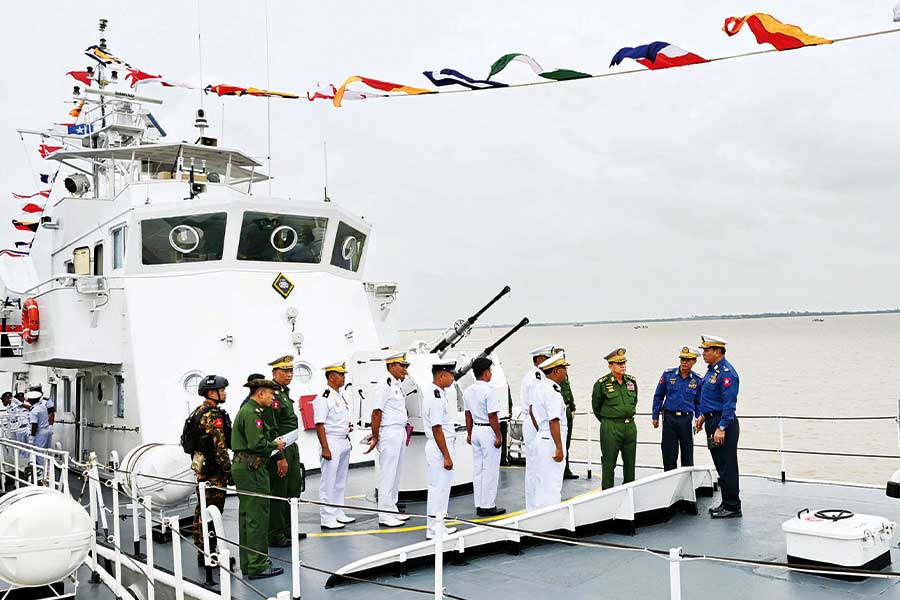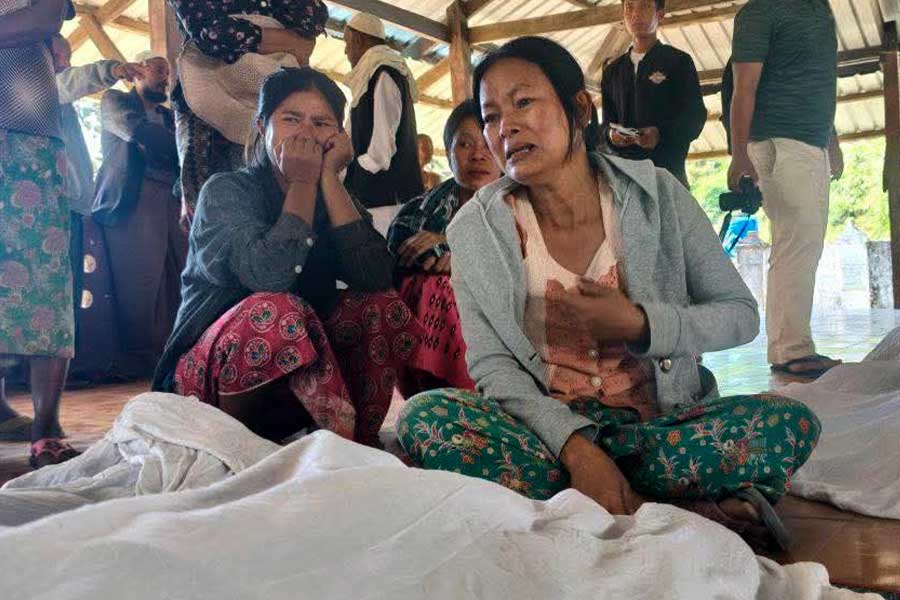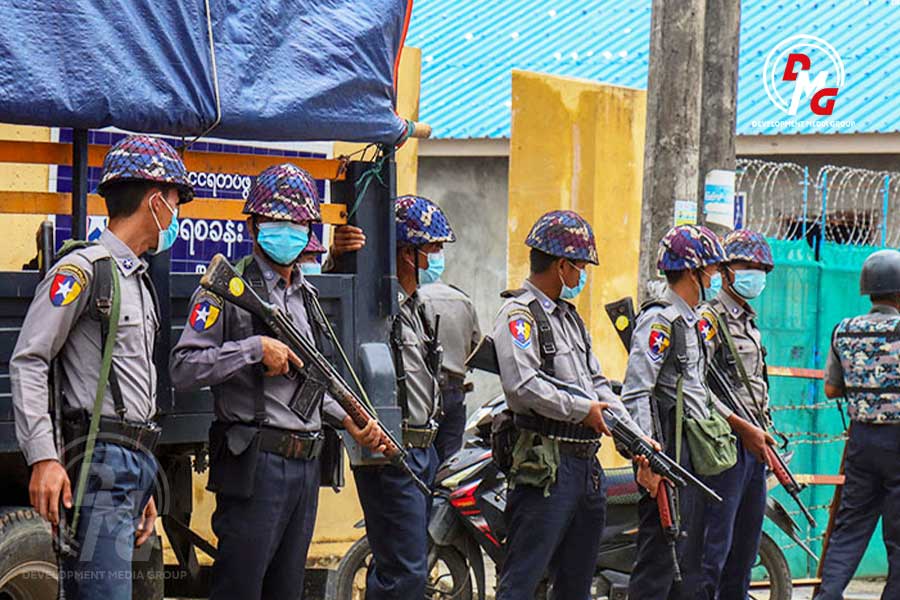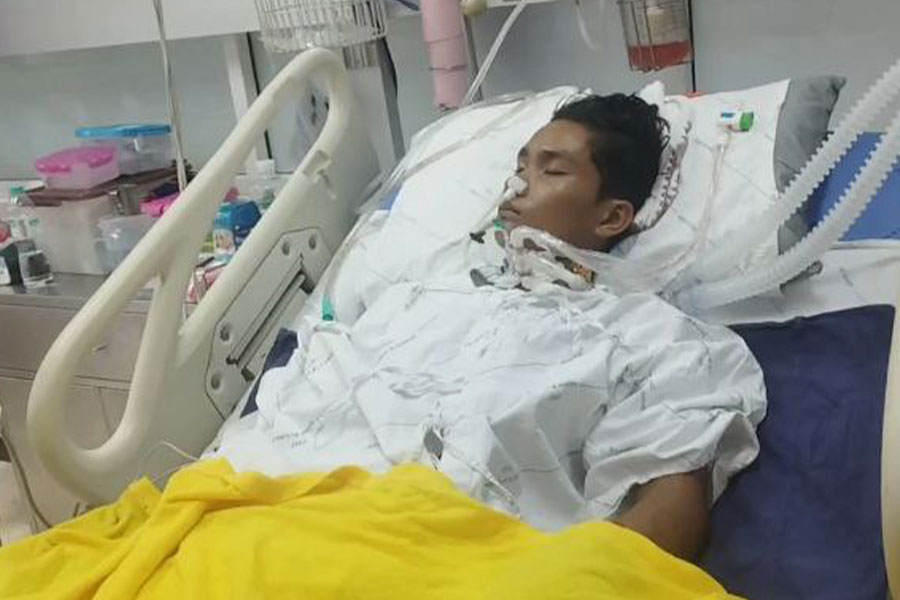- Junta expands naval presence along Arakan coast to regain lost territory
- Nearly 70 civilians and POW family members killed or injured by junta attacks in Arakan State in one month
- Junta accused of extorting money from detained Muslims in Sittwe
- Weekly Highlights from Arakan State (Jan 26 to Feb 1, 2026)
- Arakanese youth stabbed in Mae Sot urgently needs financial aid for medical treatment
Junta yet to lift travel ban for local, international aid agencies
Myanmar’s military regime has not yet lifted its travel ban on local and international nongovernmental organisations (NGOs) in Arakan State despite the latest ceasefire reached between junta forces and the Arakan Army (AA).
02 Dec 2022

DMG Newsroom
2 December 2022, Sittwe
Myanmar’s military regime has not yet lifted its travel ban on local and international nongovernmental organisations (NGOs) in Arakan State despite the latest ceasefire reached between junta forces and the Arakan Army (AA).
It has been more than four months since the regime first restricted the delivery of humanitarian assistance in Arakan State, according to an official working for an NGO in Arakan State.
“I heard roads have been reopened, but travel restrictions on NGOs have not yet been officially lifted,” he said.
Amid rising military tensions with the AA, the regime banned local and international NGOs from travelling to Maungdaw, Buthidaung, Rathedaung, Mrauk-U, Minbya and Myebon townships as of July 18, citing security concerns.
The regime imposed additional restrictions in November, barring aid agencies from travelling to Kyauktaw and Pauktaw townships as well.
A local NGO worker based in Sittwe said: “We are an organisation mainly engaged in helping internally displaced people. But we have not been able to help them because of travel restrictions.”
DMG phone calls to Arakan State Security and Border Affairs Minister Colonel Kyaw Thura and the spokesman for the Arakan State Administration Council went answered on Friday.
After months of renewed hostilities, the Myanmar military and Arakan Army observed an informal ceasefire on November 26.
Daw Ma Phyu Win from Yanaungmyay displacement camp in Buthidaung Township called for allowing local and international NGOs to resume their humanitarian operations.
“Previously, we could still manage to make ends meet with supplies donated by NGOs. But we are struggling badly as rice prices have surged. We have to borrow money from others as we can’t let ourselves starve. We pay back the money when we have casual jobs, and borrow again when we have no money,” she said.
The travel restrictions imposed on aid agencies came as a further blow to IDPs people who were already struggling amid soaring prices for food and other basic goods, widespread unemployment and a gradual but steady decline in the amount of relief supplies provided to them by donors.
Prior to last week’s ceasefire, renewed fighting between the military and Arakan Army had taken place with regularity since August, with clashes reported across multiple townships in Arakan State and in Paletwa Township, Chin State.
From August to mid-October, the number of IDPs in Arakan State and Paletwa Township increased by more than 17,000 due to the resurgence of hostilities. In a statement on October 19, the UN Office for the Coordination of Humanitarian Affairs (UNOCHA) said that with those newly displaced, the total number of IDPs from past and present military-AA fighting stood at more than 91,000.















.jpg)

